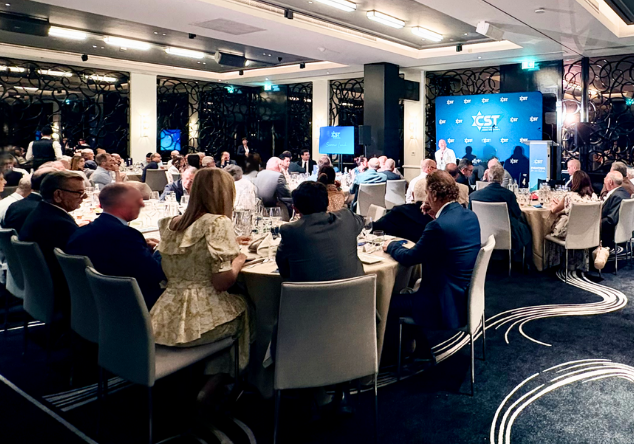CST Blog
On violent extremism and conscientious objection
7 October 2009
Inayat Bunglawala has written a confused critique of the joint Board of Deputies/CST submission to the parliamentary inquiry into the Prevent strategy, which is currently being held by the House of Commons' Communities and Local Government Committee. He has used it as an opportunity to suggest that the "pro-Israel lobby" has undue influence in the UK, a common theme in Bunglawala's writings for over 15 years. However, this is not the part of his article that caught my eye. Rather, it was his attempt to address the question of whether there is any antisemitism in the ideology and practice of jihadist terrorism:
Finally, there is something sinister in the BoDs accusation that the violent ideology of Muslim extremists possesses a core belief in anti-Semitism.
From the trial of the three British Muslims recently convicted of involvement in the airliner bomb plot, and from video messages left by other violent extremists who have gone on to commit terrorist atrocities, what has undoubtedly been a key motivating factor is the injustices they have witnessed and experienced, the results of western foreign policies abroad, including Israel.
In suggesting that extremist "ideology" is intrinsically anti-Semitic, the BoD conflates the case of Israel with Judaism itself making it next to impossible for conscientious objectors to western support for Israeli aggression to frame their concerns in language that will not automatically be designated as anti-Semitic. It is such perversions that feed the ideology of violent extremists and make difficult the prospect of speaking out against bad foreign policy decisions that are contributive to the problem of violent extremism.
The quote to which Bunglawala refers is taken from an article in the Jewish Chronicle about the BoD/CST submission. The full JC quote makes it clear that it relates to terrorism, not the wider question of Islamist ideology in general or to people who just want to "[speak] out against bad foreign policy decisions":
Government policy should also recognise that there were differences between preventing extremism and encouraging social cohesion, the Board argued.
Many Muslims may not be integrated, and may promote ideas that are antithetical to community cohesion, but are non-violent and are repelled by Islamism and Salafi jihadism. It is well to remember that the lead members of the 7/7 and Operation Crevice conspiracies came from well-integrated backgrounds.
It went on: Neither is speaking English or wearing the veil the real issue. The issue is confronting an extremist and alien political ideology which promotes the supremacy of Islam over other faiths and democratic political systems, a core belief in antisemitism and the use of violence to achieve its ends. (emphasis added).
Bunglawala suggests that this is an attempt to falsely conflate anti-Israel acts, motivated by the injustices of foreign policy, with antisemitism. The record suggests something quite different: Al-Qaeda and its supporters are all too ready to kill Jews, and observe no distinction whatsoever between Israel and Jews when they do so.
In April 2002, a suicide bomber in contact with al-Qaeda used a petrol tanker to bomb a synagogue in Tunisia, killing 19 people. In November 2003, an al-Qaeda cell bombed two synagogues in Istanbul, this time using truck bombs, killing at least 24 people and injuring hundreds more. Earlier that year, 45 people died in five coordinated suicide bombings in Morocco, which included amongst the targets a Jewish social club, a Jewish-owned restaurant and a Jewish cemetery. Then there was the slaughter at Mumbai's Chabad House last November. Here in Britain, the would-be terrorists convicted under Operation Crevice had compiled, amongst their other potential targets, a 12-page list of synagogues from around Britain. There are numerous other examples from around the world of al-Qaeda and its supporters attempting, and sometimes succeeding, to kill Jews.
This did not come out of nowhere. The writings of jihadi ideologues and propagandists, whether historical figures like Sayyid Qutb or contemporary theoreticians of the global jihad like Abu Musab al-Suri or Ayman al-Zawahiri, commonly feature antisemitic conspiracy theories and contemptuous depictions of Jews. More important are the repeated calls from the leaders of the global jihad for Jews - not Israelis, but Jews - to be killed. In March last year, for example, Zawahiri released an audio message entitled "A call to help our people in Gaza", which explicitly called for attacks on Jews around the world:
Hence, O Muslims, today is your day. Attack the interests of the Jews and the Americans and all of those taking part in the offensive against the Muslims. Select your targets, collect the appropriate funds, assemble your equipment, plan [your attacks] accurately, and then charge towards your targets, while placing your trust in Allah and asking him to permit you to die as martyrs and ascend to paradise. O Muslims, your cries during public demonstrations have created an atmosphere of anger, [but] they have been fruitless. If, today, you abandon our people in Gaza to their fate while you limit yourself merely to shouting and demonstrating, than [sic] tomorrow the circle will close upon you, and the Christians and Jews will kill you while others may be shouting and demonstrating. There is no place today for those who claim that the battlefield with the Jews is limited to Palestine, and we have to obey the call of Allah to 'fight the infidels everywhere as they fight you everywhere and know that Allah is with those who obey him.'
Al-Qaeda and its supporters are hardly the first terrorists to attack synagogues or other Jewish targets. CST's report on Terrorist Incidents Against Jewish Communities and Israeli Citizens Abroad listed over 400 actual and attempted terrorist attacks around the world, by all sorts of different extremists, between 1968 and 2003. As the report shows, the perpetrators of the attacks, whether they are radical Islamists, neo-Nazis, Palestinian nationalists or Marxist-Leninists, do not tend to distinguish between Jews, Israelis or that malleable term, 'Zionists'. Nor are al-Qaeda the first to justify their murderous activities by referring to the Israeli-Palestinian conflict. Every terrorist thinks they have a grievance or a cause that justifies what they do. Zawahiri may base his call to kill Jews on events in Gaza, but the record of al-Qaeda and its supporters shows that it will be random Jews and non-Jews, not Israelis, that they kill. Nor will it suffice to argue that Jews should distance themselves from Israel to avoid the threat of terrorism. The bombing of synagogues is not the work of reasonable-minded people getting a bit confused: it is built on deep bigotry.
The Muslim Council of Britain has always condemned al-Qaeda terrorism. Its website carries a list of all its press releases, with several that feature sincere condemnation of al-Qaeda terrorist attacks, including those in New York, London and Madrid. However, I have always found it troubling that the list carries no mention of the twin syngagogue bombings in Istanbul, but does feature a press release condemning the bombing five days later, by the same al-Qaeda cell in the same city, of the British consulate and HSBC bank. I have looked for other comment by the MCB on the synagogue bombings, but so far have found none. Bunglawala himself, then the MCB's spokesman, was quoted in the Independent a couple of days later as saying "The Muslim community has consistently condemned terrorism and we condemn this latest attack on the British consulate and HSBC in Turkey." Again, no mention of the synagogue bombings in Bunglawala's quote (or at least in what the Independent chose to report of it); it is as if they never happened. The MCB's press release list also carries no mention of the bombings in Tunisia or Casablanca, but to be fair these had no British connection. The four bombings in the space of five days in Istanbul were so closely tied together that it almost seems harder to condemn the consulate and HSBC attacks while not mentioning the synagogues, than to condemn them all as one. Yet I know that Bunglawala does not support terrorism, and I am sure that, if asked, he would readily and sincerely condemn the bombing of synagogues.
I think the answer to this may lie in Bunglawala's comment that, by highlighting the antisemitic ideology and practice of jihadist terrorism, the Board of Deputies and CST make it "next to impossible for conscientious objectors to western support for Israeli aggression to frame their concerns in language that will not automatically be designated as anti-Semitic." The suggestion is that if you acknowledge the antisemitism of al-Qaeda, then you render yourself unable to criticise Israel in a non-antisemitic way; as if either no opponent of Israel is antisemitic, or they all are. It shouldn't need me to explain why this is such a confused and nonsensical idea. Apart from anything else, it is based on a loose use of language by Bunglawala. The relevant section of the CST/BoD submission deals specifically and clearly with violent extremists - which Bunglawala acknowledges. For him to then slip from "violent extremists" to "conscientious objectors" is either a flawed and lazy equation or a euphemism that erases the boundary between legitimate democratic protest and terrorism. This alone makes it hard to take Bunglawala's argument seriously: but then it is hard to take anybody seriously, who appears to argue that al-Qaeda - whose leaders call for Jews to be killed and whose followers bomb synagogues - does not have an antisemitic ideology.
Read More

Antisemitic Incidents Report January-June 2025
6 August 2025

CST Summer Lunch 2025
25 June 2025
CST Annual Dinner 2025
26 March 2025
